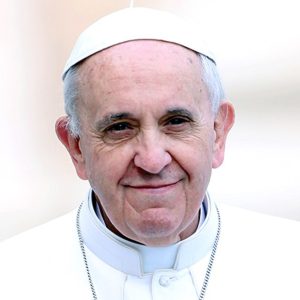From the Cardinal: Family is a school of humanity, love and hope | February 2, 2024
Click a button to jump to the section:

Vol. 5. No. 10
My Dear Sisters and Brothers in Christ,
Our Church takes seriously the challenges facing today’s families. Under the leadership of our Holy Father, Pope Francis, we are committed to identifying and addressing the fundamental needs of families because we recognize that nothing is more important to the growth and development of individuals and of society itself than the family.
The Church teaches that the family is a school of humanity, love and hope for society. It is the place where each of us learns who we are as individuals and as members of human society.
The family is also where we first learn how to live—how to take care of ourselves, how to share our gifts and talents with others, and how to collaborate and live in harmony with our neighbors, whether close to home or far away.
Family teaches us who we are and how we should live as mature men and women. Without the family, children cannot grow beyond their individualism, their isolation from others. Without family, unity among people and nations loses its most basic bond and becomes merely pragmatic, “conceivable only on the basis of utility, on a calculus of fear, but not on the goodness of living together, not on the joy that the mere presence of others can give” (Pope Francis, “Lumen Fidei,” #51).
Family teaches us that we are God’s children, brothers and sisters called to participate in the life of God himself, the Blessed Trinity. This is where we learn to recognize the sacredness of every human life and the beauty (and necessity) of living together in peace. This is where we discover the fundamental principle that grounds all human rights and dignity: Every person, regardless of gender, race, religion, economic or social status is deserving of our respect. This is where we learn that the family is the only lasting, solid foundation on which healthy societies can be built.
Family teaches us how to live. In the family, we learn the basics of economy, the value of work, the meaning of sexuality, the joy of self-giving, the importance of breaking bread together and having fun with family members and friends. These are not small things. They have a huge impact on our quality of life and on our ability to interact with others—extended family, neighbors, fellow citizens and even strangers (including “aliens” or “enemies” who are unlike us and whose differences threaten our self-understanding).
Family teaches us to grow up and to reach out to others. It helps us be confident enough in our own identity that we are not afraid to venture beyond isolated individualism, and to build meaningful relationships based not on self-interest but on selfless love and service. That’s why we consider the family to be a school of love that teaches unity and that fosters harmony and peace among all peoples.
I’m keenly aware that this understanding of the meaning of the family represents an ideal that is rarely achieved in its fullness. There is a lot of brokenness in families today (as in every age), and every one of us can point to the ways that our families (all families) fail to live up to the grand vision that our Church proposes for the meaning of marriage and family life.
Still, we believe that the family is worth fighting for. We are convinced that our individual lives and our world are enriched by “the sanctuary of life and love” that good families provide. We believe that every child should grow up in the warmth and protective care of a loving family. We deeply regret that the challenges facing families today threaten the health and happiness of individuals and the common good of human society.
May the Holy Family (Jesus, Mary and Joseph) intercede for all families. May they help our Church do all that it can to strengthen marriage and family life today and always!
Sincerely yours in Christ the Redeemer,
Cardinal Joseph W. Tobin, C.Ss.R.
Archbishop of Newark

The Realities of Families Today
A selection from “Called to the Joy of Love: National Pastoral Framework for Marriage and Family Life Ministry” numbers 12–18, published by the United States Conference of Catholic Bishops Committee on Laity, Marriage, Family Life and Youth, 2021
The Church’s pastoral efforts must “focus on the concrete realities” of family life in every generation. Within our country today, this focus is critical due to the multitude of challenges faced by married couples and families.
These include but are not limited to societal influences such as materialism and secularism; individualism and isolation; consumerism and a “throw-away culture”; a culture of permissible promiscuity; frequency of divorce; rising rates of cohabitation; abortion and its tragic consequences; internal struggles within the family unit that run counter to the integrity of the family such as substance abuse and addiction; pornography; many forms of domestic abuse and violence, including physical, sexual, emotional, and economic; prevalent use of contraception and sterilization; infidelity and divorce; civil marriage and remarriage; the trend of delaying marriage and vocational commitment among young adults; the prevalence of children raised without the benefit of a married mother and father; the promotion of ideologies that directly run counter to natural law and church teaching such as same-sex relationships and transgenderism; internal stressors on family life including financial instability, unemployment, sickness, and medical issues; immigration challenges and family separation; and other societal ills that afflict families today: racism, ageism, misogyny, human trafficking, and medical/reproductive technologies that objectify and demean the dignity of life, sexuality, and the human person.
However, we also see signs of hope and renewed opportunities in this country that remind us that “families are not a problem; they are first and foremost an opportunity.”
Oftentimes, the witness of other families is the best form of evangelization. Forming families to partake in the mission of evangelizing other families is a necessary part of this ministry to families. By the grace of the Sacrament of Matrimony, Christian families are “the principal agents of the family apostolate, above all through ‘their joy-filled witness as domestic churches.’” Ministry should prepare and enable families, therefore, to take up their role as agents or evangelizers starting with “evangelization and catechesis inside the family.”
Many couples and families bear witness to the joy of faithful love by steadfast commitment and fruitful sacrifice within their daily lives. To them, the Church looks “with inner joy and deep comfort . . . encouraging them and thanking them for the testimony they offer.”

A Message from Pope Francis: Words of Comfort and Hope
(A selection from Pope Francis’ address at the launch of the Family Global Compact, May 30, 2023.)
Dear brothers and sisters!
In the Apostolic Exhortation Amoris Laetitia, I expressed my conviction that “the welfare of the family is decisive for the future of the world and that of the Church” (No. 31). With this in mind, I wish to support the Family Global Compact, a collaborative plan aimed at bringing the pastoral care of families into dialogue with centers of study and research on the family located in Catholic universities around the world. An initiative of the Dicastery for the Laity, Family and Life and the Pontifical Academy for Social Sciences, the Compact is inspired by studies and research on the cultural and anthropological relevance of the family and the new challenges it faces.
The goal is synergetic: to enable the pastoral care of families in the particular Churches to benefit from the research and the educational and training programs in Catholic universities. Together, the universities and programs of pastoral ministry can more effectively promote a culture of family and life in this time of uncertainty and a certain shortage of hope. Solidly grounded in present realities, such a culture would help new generations to appreciate marriage and family life with its resources and challenges and the beauty of generating and nurturing human life. What is urgently needed, in a word, is “a more responsible and generous effort to present the… motivations for choosing marriage and the family and in this way, to help men and women better respond to the grace that God offers them” (Amoris Laetitia, 35).
Catholic universities have the task of developing in-depth theological, philosophical, legal, sociological and economic analyses of marriage and the family, in order to uphold their importance within contemporary systems of thought and action. Studies have revealed a crisis in family relationships, fueled by both contingent and structural problems, which, in the absence of adequate means of support from society, make it more difficult to create a serene family life. This is one reason why many young people are choosing unstable and informal types of emotional relationships over marriage. At the same time, surveys make it clear that the family continues to be the primary source of social life, and point to the existence of good practices that deserve to be shared and promoted globally. Families themselves can and should be witnesses and leaders in this process.
It is in the family that many of God’s dreams for the human community are realized. Hence, we cannot resign ourselves to the decline of the family in the name of uncertainty, individualism and consumerism, which envision a future of individuals who think only of themselves. We cannot be indifferent to the future of the family as a community of life and love, a unique and indissoluble covenant between a man and a woman, a place where generations meet, a source of hope for society. The family, it should be recalled, has a positive effect on everyone, since it is a generator of common good. Healthy family relationships represent a unique source of enrichment, not only for spouses and children but for the entire ecclesial and civil community.
Source: Vatican

My Prayer for You
Jesus, Mary, and Joseph, in you we contemplate the splendor of true love; to you we turn with trust.
Holy Family of Nazareth,
grant that our families, too,
may be places of communion and prayer, authentic schools of the Gospel
and small domestic churches.
Holy Family of Nazareth,
may families never again experience violence, rejection, and division;
may all who have been hurt or scandalized find ready comfort and healing.
Holy Family of Nazareth,
make us once more mindful
of the sacredness and inviolability of the family, and its beauty in God’s plan.
Jesus, Mary, and Joseph, Graciously hear our prayer.
